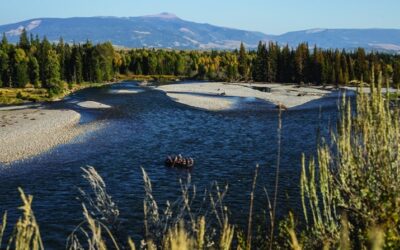It is no secret that women and other marginalized groups face discrimination and microaggressions in the world of outdoor sports. Inequity in that arena is systemic. On the industry level, 38 percent of women report that they have faced behavior or comments that are discriminatory or biased. That’s according to a 2017 study on gender equity in the outdoor industry by Camber Outdoors.
Pro-skier Crystal Wright co-founded the Jackson Hole Babe Force to create supportive spaces for women in the outdoors. In six years the organization has evolved from offering all-women ski/snowboard and mountain bike meetups to providing free avalanche courses. The latter has marked the young organization’s progress and is now its key focus. In 2015, the Jackson Hole Babe Force awarded avalanche education scholarships to two women. In 2018, that number jumped to 28 women.
Carter Cox was among the 2018 scholarship recipients for an avalanche 1 course. It was an all-women course with two nights of classes learning snow science and then two days of hands-on instruction in the mountains. She says the notion of an avalanche course with men and women didn’t excite her all that much because “it would have a lot of opportunity for some of the power dynamics that you see in everyday life. So for me going through it with all women of varying skills and different backgrounds, everyone felt comfortable to ask any question they had.”
When those power dynamics manifest in the backcountry, Cox says, they can be particularly precarious. “It’s not just a matter of a decision being made differently. It can be someone’s life.” She says the course provided her with the language, skills and confidence to ask informed questions in the backcountry and hold her backcountry partners accountable.
Avalanche 1 courses typically cost upwards of 400 dollars. As a single mother of two young children, Cox says the Jackson Hole Babe Force scholarships also created an opportunity for the kind of outdoor education that would be financially prohibitive for her otherwise. “Taking two nights and two full days requires a lot of coordination and childcare costs for me and the fact that [JH Babe Force] provided those scholarships so that the barrier can be lessened or removed is huge.”
Cox is also hopeful that outdoor spaces, which have long been hypermasculinized, will transform as more women reclaim such spaces. “In the mountains in particular there is this praising of people going hard and being aggressive. I think there’s a place for that and it’s wonderful we live in a healthy community where people are really active.”
But, she says, “there’s also great risk in going out there and in particular when it has to do with snow safety and avalanches, it doesn’t have to do with how strong or active you are, it has to do with what you know about the conditions and the terrain you’re moving through, what you’re planning on skiing and how you are being thoughtful about that. So I think it’s part of shifting the conversation to honor that and be OK with that.”
A culture shift could make mountain activities safer. According to a 2016 study in the journal Wilderness and Environmental Medicine, for several decades men have accounted for more than 80 percent of avalanche fatalities. Young men in particular are more likely to take risks than women. Hence the more women entering mountain arenas equipped with proper knowledge could improve safety practices for everyone.
Jackson Hole Babe Force hosts its annual fundraiser, a Kentucky Derby dance party, 7 to 11 p.m. Saturday, May 4 at Hatch Taqueria and Tequilas.





